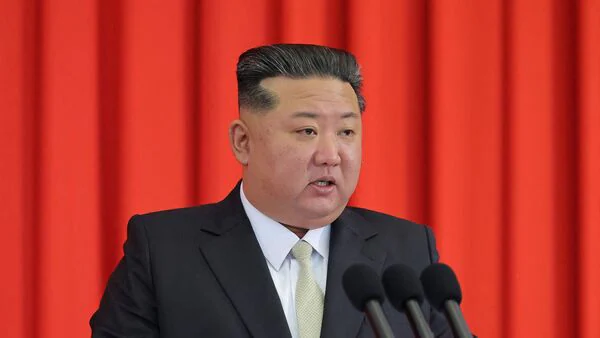No More 'Ice Cream' In North Korea? All About Kim Jong Un's Shocking New Crackdown
Leader Kim Jong Un has reportedly banned the use of the word“ice cream”, labelling it a foreign influence, and ordered that it be replaced with state-approved terms such as eseukimo or eoreumboseungi, meaning“ice confection.”
According to reports from Daily N , the move is part of a sweeping campaign to purge Western and South Korean words from the country's vocabulary, especially in its expanding tourism sector.
From Ice Cream to 'Eseukimo'Tour guides in North Korea are currently undergoing intensive three-month training in Wonsan and other key tourist destinations. As part of their training, they are forbidden to use certain Anglicised words, even when speaking to foreign visitors.
Instead of aiseukeurim - derived from the English word“ice cream” - guides must now say“eseukimo” or“eoreumboseungi.”
The change has left some trainees puzzled.
“We would presumably have to use foreign words for foreign tourists to understand us,” one trainee told Daily NK, speaking anonymously due to fears of repercussions.
Despite their frustrations, trainees are careful not to criticise the policy openly.
“Being a tour guide is a good job, and if you say one wrong thing, you could be kicked out of the programme,” another trainee explained.
Who Are Eskimos - and Why the Name Could be ControversialInterestingly, the term eseukimo is derived from Eskimo, a word historically used to refer to Indigenous peoples in the Arctic regions, including parts of Alaska, Canada, Greenland, and Siberia.
However, the term“Eskimo” is now considered outdated and even offensive by many communities, who prefer names such as Inuit or Yupik, which reflect their distinct cultural identities.
North Korea's adoption of the term has raised eyebrows, with linguists suggesting it may reflect the regime's attempt to use foreign-sounding words without directly borrowing from English.
From Hamburgers to "Double Bread with Ground Beef"Among the banned words is the globally recognised“hamburger,” which must now be referred to as dajin-gogi gyeopppang, a literal translation meaning“double bread with ground beef.”
Even karaoke machines have been rebranded, with tour guides instructed to call them“on-screen accompaniment machines.”
An official from Kangwon province, where the new beachside resort city of Wonsan is being developed, explained the rationale behind the linguistic purge:
“The goal is to teach tourism professionals to consciously use North Korean vocabulary and expressions while carefully avoiding South Korean-style expressions and foreign loanwords they may have been using unknowingly.”
Why Kim Jong Un Is Targeting LanguageAn official from Kangwon province, where the beachside city of Wonsan is being developed as a luxury resort hub, explained the reasoning behind the crackdown to Daily NK:
“The goal is to teach tourism professionals to consciously use North Korean vocabulary and expressions while carefully avoiding South Korean-style expressions and foreign loanwords they may have been using unknowingly.”
The policy forms part of a broader government strategy to promote tourism while shielding North Korean society from outside cultural influences. By controlling language, Pyongyang hopes to control what both locals and foreign visitors hear and say.
North Korean Tourism with a Political TwistThe training programme, which began on 21 August, is being directly overseen by the Workers' Party of Korea's Cadre Department.
Wonsan, which the regime hopes to turn into a hub for international tourism, is reportedly pouring resources into the initiative, training between 20 and 30 individuals, including graduates of provincial foreign language universities and new recruits from the State General Bureau of Tourist Guidance.
The three-month course covers everything from handling foreign tourists to dress codes, professional conduct, and the memorisation of approved slogans and phrases.
Legal Disclaimer:
MENAFN provides the
information “as is” without warranty of any kind. We do not accept
any responsibility or liability for the accuracy, content, images,
videos, licenses, completeness, legality, or reliability of the information
contained in this article. If you have any complaints or copyright
issues related to this article, kindly contact the provider above.
Most popular stories
Market Research

- Bitmex And Tradingview Announce Trading Campaign, Offering 100,000 USDT In Rewards And More
- Japan Halal Food Market Size To Surpass USD 323.6 Billion By 2033 With A CAGR Of 8.1%
- Chicago Clearing Corporation And Taxtec Announce Strategic Partnership
- Red Lions Capital And Neovision Launch DIP.Market Following ADGM Regulatory Notification
- Poppy Seed Market Size, Share, In-Depth Insights, Opportunity And Forecast 2025-2033
- Pluscapital Advisor Empowers Traders To Master Global Markets Around The Clock




















Comments
No comment